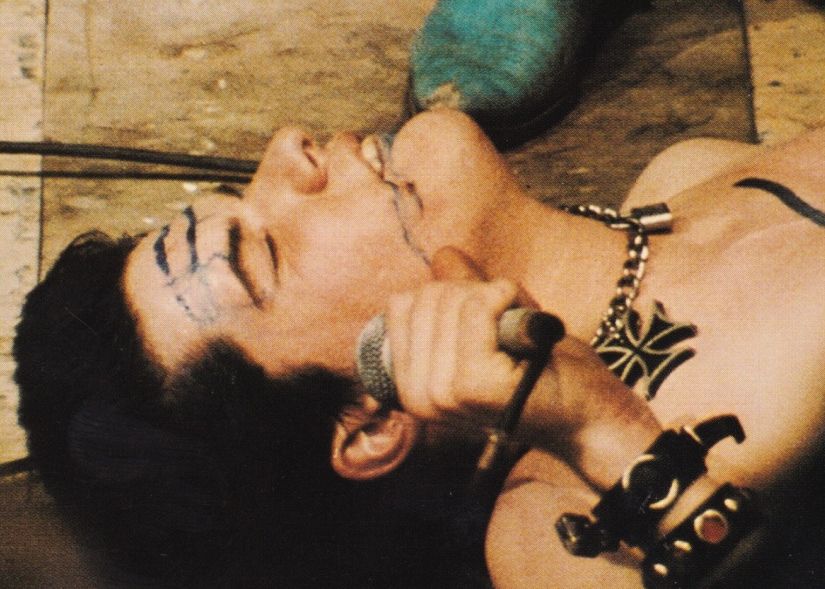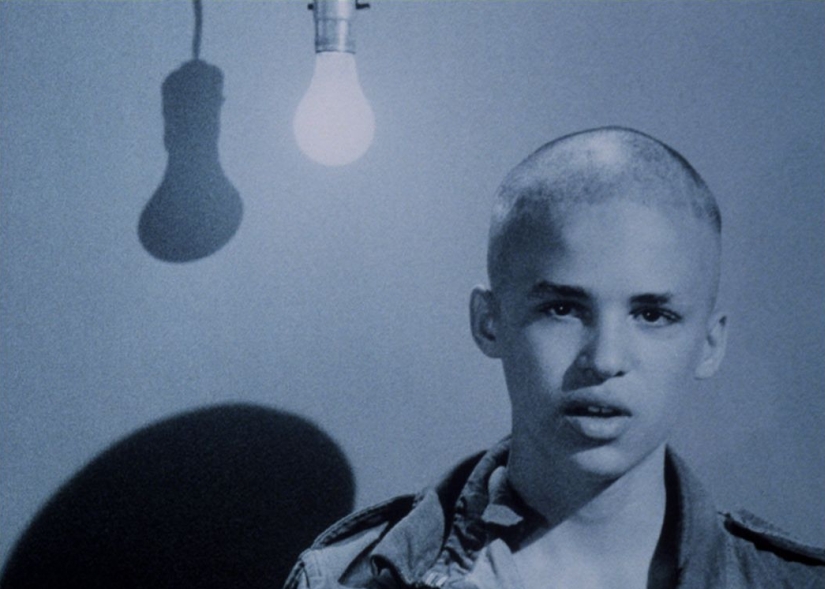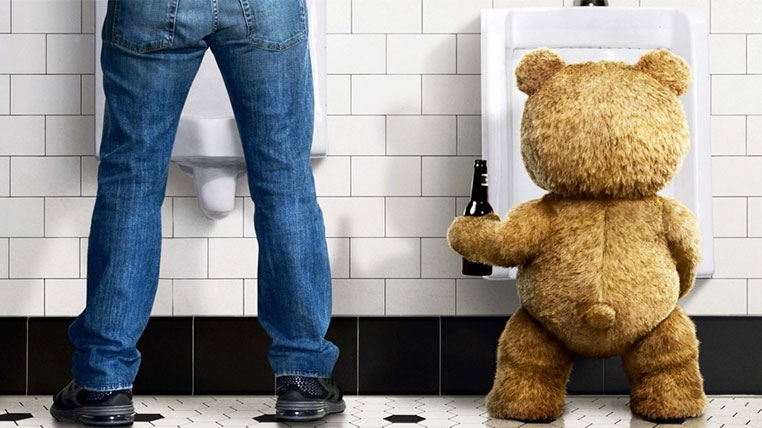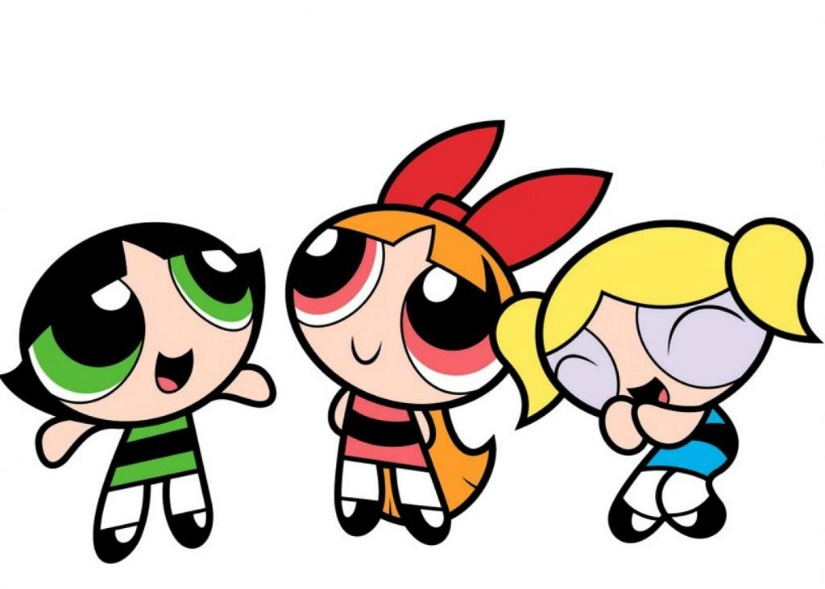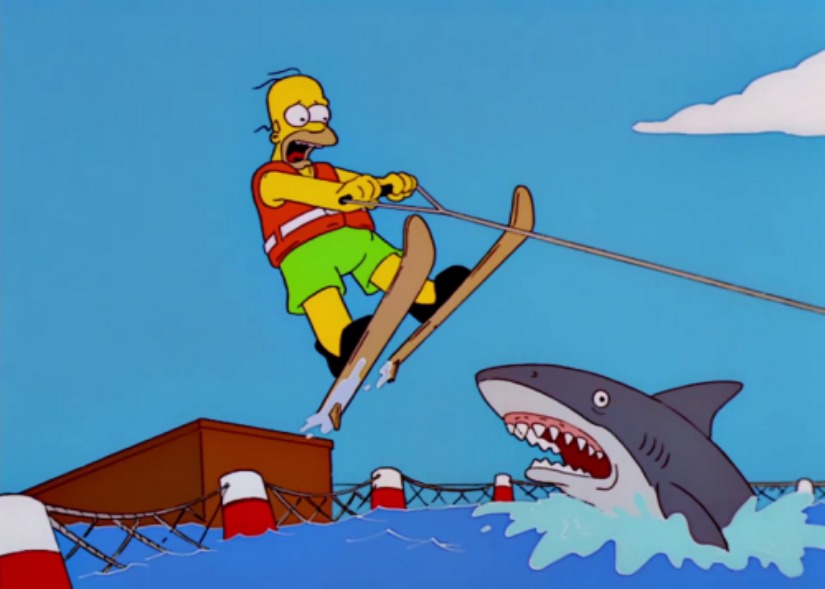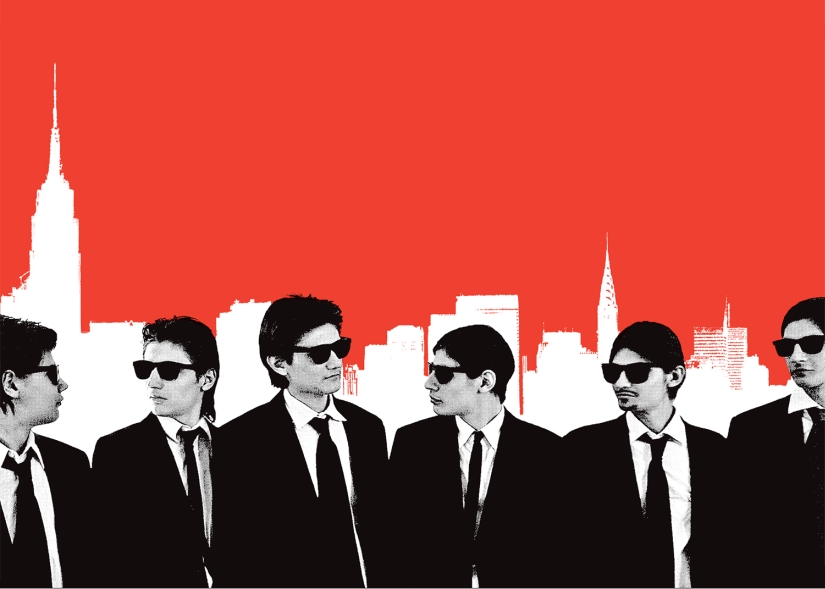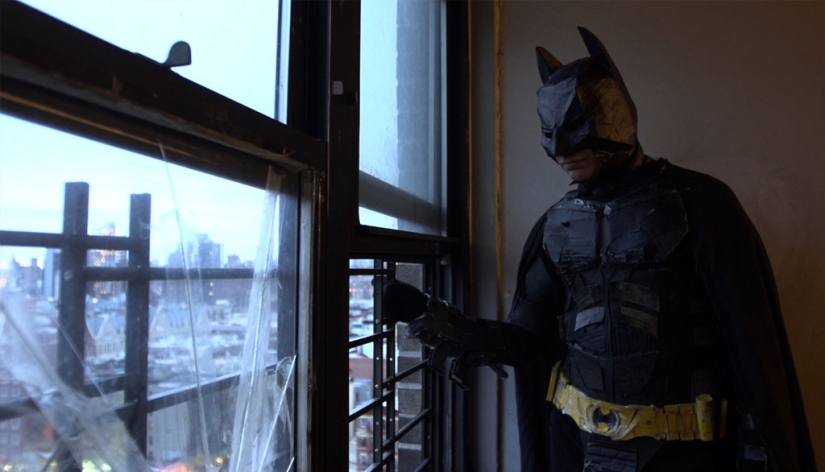The Decline of Western Civilization: To Live and Die in LA
Penelope Spheeris' The Decline of Western Civilization is one of those seminal music documentaries with a great reputation despite being rarely seen. Ditto its two sequels. Never available on DVD or Blu-ray, The Decline of Western Civilization trilogy is finally being released by Shout Factory at the end of the month. In addition, the first two films of Spheeris' Decline trilogy will screen at The Music Box Theatre in Chicago on Saturday, June 27th, with Spheeris in attendance. (For more information about the Music Box screening, click here.)
Even though I've only seen the first Decline, I'm excited for the trilogy's release in general. Maybe the lack of availability has increased the potency of the material and my desire to see it. (Absence makes the heart of the LA scene grow dismaler.) In the first Decline, Spheeris hung around LA punk bands like Black Flag, The Circle Jerks, X, and The Germs and included live concert footage; she caught the daily grind of music mag Slash; she interviewed kids at punk shows. In the process, her documentary captures the spirit of the scene as a whole: an aggressive sneer looking out over the ugly void of the 80s, the logical conclusion after the disillusionment of the 70s and the dashed hopes of the 60s.
Titling the documentary The Decline of Western Civilization seems cheeky, but it's fitting since the story of the movie is the quintessential American tale of the California bummer.
[youtube id="aiCTq_AHcqw"]
Think about it. Before westward expansion was over, the possibilities must have seemed limitless. Land, far as the eye can see, untouched, unspoiled, and with a little genocide, eventually ours. When gold was discovered, the west had riches untold, though only for a few; the rest were ripped off or died trying to eventually get ripped off. With the motion pictures there was the promise of fame rarely achieved, and during the Depression there were jobs that weren't worth the trek. For the generation of love, places like San Francisco seemed utopian, but the promise of the 60s was dashed by political assassinations capped by hippie bloodshed (i.e., the Manson murders, Altamont) that revealed a naive kind of hippie bullshit.
Early in The Decline of Western Civilization, the owner of a punk club stands atop a hill with the LA skyline muggy with haze. Cars on the freeways beneath churn out more and more smog. To paraphrase him, everyone went west expecting paradise, but when they got there, the air sucked.
To put it another way: In Tom Wolfe's The Electric Kool-Aid Acid Test, the summation of the counterculture's failure was the refrain "We blew it"; the equivalent in The Decline of Western Civilization is a disaffected teenager staring at the camera and sighing "Fuck."
While the punk scene seems like it ought to be about community, the film seems to chronicle a form of punk cannibalization. From interviews with punk show kids, they talk about an aggressive and violent streak. In one particular interview, Pat Smear--then of The Germs and later of Nirvana and Foo Fighters fame--admits to beating up girls just because; in the concert footage, pits open up and swirl, full of punk kids and punchy suburban bros and spit. Adding to the vibe of society's lawless decline, the security at the shows are decked out in leather jackets, like the lawmen from the original Mad Max.
It's not just punk-on-punk cannibalization, but in some cases self-cannibalization. Darby Crash of The Germs embodies the latter. He harms himself at shows, scratching his skin and drawing blood. Spheeris catches him on camera zonked out of his gourd. There's permanent marker smeared all over his face and body like he's part poster-child for disaffected youth and part punk-parody in the form of horse hair pottery. Crash slurs out all of the lyrics in a daze while beneath him are subtitles with the proper lyrics. It's funny and sad all at once, though maybe sadder than funny given Crash's eventual suicide from a heroin overdose.
From the clips I've seen, 1988's The Decline of Western Civilization Part II: The Metal Years is less like the first Decline and more like This Is Spinal Tap or the cult short film Heavy Metal Parking Lot. (Spheeris declined to direct This Is Spinal Tap.) The excesses of the second film are about rock star cliches, which might seem like the high-life or a dream fulfilled, but it seems like a steeper fall given the vapid nature of the rock and roll dream. Maybe the focus of The Metal Years was anticipated by the emptiness delineated in X's "Sex and Dying in High Society." 1998's Decline Part III (never released on home video), is all about the homeless gutterpunks of LA and their daily struggles to get by. It's a continued drop headed into the 21st century, because one of the constants of America is the California bummer.
Though not part of the LA punk scene, Johnny Rotten may have succinctly summed the trajectory of the decline of western civilization back in 1977: "No future." The rudderless world continues into the void of the 21st century. West isn't an option anymore, and the only direction left is down. It's fitting that Spheeris would end The Decline of Western Civilization with footage of the band Fear.
[Playlist of the Week] 10 Blockbuster Hits of the Summer
With summer right around the corner, film buffs everywhere are gearing up for the soundtrack releases. While most people aren’t interested in scores, we’ve found the small light with familiar songs being featured on each film's respective OST. In no particular order, here are 10 songs featured on blockbuster soundtracks of movies being released this summer.
The Top 10 Powerpuff Girls Episodes
The Powerpuff Girls, along with the other Cartoon Cartoons on Cartoon Network in the late '90s - early 2000s, were a huge part of my childhood. I mean sure I was supposed to grow out of them by the time Powerpuff Girls came around, but at ten years old, seeing superheroes beat up dudes in a bubblegum world was fantastic. Through the show I learned about blurred gender lines, feminism, and just how badass people could be regardless of sex. Also, the show was just a lot of fun.
Since The Powerpuff Girls is returning to Cartoon Network sometime next year in a new form, I figured it was a good time to talk about the best episodes from the show's original run. Couple of things. I didn't follow any set of rules so you'll see a lot of episodes from the same season because they were just that good, and I tried to choose episodes that married writing, premise, and animation better than the others. So let's get to it then.
Here are the Top 10 Powerpuff Girls episodes.
Honorable Mentions: Major Competition, Candy is Dandy, A Very Special Blossom, Beat Your Greens, Equal Fights, Super Zeroes, Slumbering With the Enemy, Los Dos Mojos, The Powerpuff Girls Rule!!!, Custody Battle, Oops, I Did It Again, Forced Kin, Meet the Beat-Alls, Monkey See, Doggy Two, The Powerpuff Girls Movie
10 Life Lessons From Current Women in Television
The women of television have a stronger voice now more than ever. With hit dramas and comedies that host stars of both sexes as the protagonist, women in television are sharing the spotlight. In some cases, they’re even stealing it from their male counterpart. While we’ve seen some of our favorite shows come to a conclusion this season, there are many ongoing ones that deserve praise; especially for their female stars. These are some life lessons we should learn from current female characters in television.
(WARNING: CONTAINS SPOILERS)
4 Must-See Films at BAMcinemaFest 2015 (June 17-28)
BAMcinemaFest 2015 kicks off tomorrow night in Brooklyn. Launched in 2009, the showcase includes some of the finest and most talked-about independent films on the festival circuit from all over the world.
This year's BAMcinemaFest includes the The End of the Tour starring Jesse Eisenberg and Jason Segel, Nasty Baby starring Kristen Wiig and Tunde Adebimpe from TV on the Radio, special retrospective screenings of Larry Clark's Kids and Richard Linklater's Slacker, as well as a sneak preview of Noah Baumbach's Mistress America starring Greta Gerwig.
We were able to catch a few of the films screening at BAMcinemaFest 2015 early. Here are our picks for the four must-see films that are screening over the next week and a half.
For tickets and more information about BAMcinemaFest 2015, visit here.
[Playlist of the Week] 5 Retro Video Game Themes for E3
Video games have played a large role in my nearly 30 years of life; so, too, has music. While video game OSTs (Original Soundtracks) don't get the acclaim and recognition they often deserve, the right soundtrack can easily be replayed countless times without the context of a boss battle or stage selection screen.
With this year's Electronic Entertainment Expo (E3) taking place this week, I figured it'd be as good a time as any to curate a playlist of five iconic, retro video game themes for this week's installment of Playlist of the Week. I capped my selections to only include video games released before 1993 to get that extra retro, MIDI feel... and to keep the door open for even more in the future.
I hope you enjoy my selections! We'll also be covering the major video game announcements from E3 this week, so if video games tickle your fancy, we'll have you covered!
Why The Simpsons is Not As Good As It Used to Be
In season 13, the episode "Gump Roast" has a clip show that ends in NRBQ performing "They'll Never Stop The Simpsons," a parody of Billy Joel's "We Didn't Start the Fire." Along with summarizing the crazier stories over the years like Homer's marijuana use or when Homer thought Bart was gay, it made fun of their current lack of stories with an image of Homer jumping a shark along with joke lyrics like "Have no fears we've got stories for years!" and for the longest time I believed it. While the later seasons were never "classic" territory, there are still plenty of examples I use to show how good it is like "Pray Anything," "The Fight Before Christmas," "500 Keys," and "The Day the Earth Stood Cool." I am one of the few people out there that wanted it to go on forever.
But after watching the latest train wreck of a season, and after learning that the showrunners plan to legally separate Homer and Marge for the upcoming 27th (!) season, I'm giving up. Regardless of whether or not this is meant for a single episode, separating Marge and Homer or playing with the idea in order to get fans talking feels more like grasping at straws than ever before. And with the way The Simpsons is currently written, this can only turn out badly.
This old gray mare, she ain't what she used to be.
The Wolfpack Is a Problematic Documentary Rather Than a Quirky Delight
Given its overuse, the word "problematic" can seem so mealy-mouthed and equivocal. Yet "problematic" is the word that came to mind after I watched Crystal Moselle's documentary The Wolfpack, which comes out today in New York and Toronto and opens in more theaters across the country next week.
The Wolfpack chronicles the lives of the Angulo brothers, six teenage boys and young men who live in Manhattan. For most of their lives, their parents forbade them from leaving their Lower East Side apartment. The six brothers and their sister were homeschooled and prevented from seeing the outside world. While there's a specter of physical and psychological abuse throughout the film, the Angulo boys find an oddly joyous outlet via home video recreations of movies such as Reservoir Dogs and The Dark Knight. Moselle captures the Angulo brothers just as they are beginning to get out of the apartment and assert their own agency.
There have been a few accusations that the film is a fabrication and that the story that Moselle found was too riveting to be true. That's not an issue to me. Moselle explained her filmmaker process and how she first encountered the Angulo brothers in various interviews (this interview Moselle did with Tasha Robinson of The Dissolve is quite good), so I don't think matters of fabrication need to be answered any further. What I found problematic was the film's form of presentation, which is both intriguing and yet incomplete. It leaves so many questions about the Angulo family either unanswered or seemingly unasked, and it made me wonder about the difficult and delicate relationship that documentarians have with their subjects when the subject matter is troubling.
[iframe id="https://www.youtube.com/embed/rDbqcMfUdlI" align="center" mode="normal" autoplay="no" maxwidth="825"]
From a distance, the situation of the Angulo brothers sounds like a potential casserole of indie movie quirkiness. Their forced internment in the apartment, their positivity in the face of the situation, their recreations of popular films, the verite style in which the documentary is shot--it's like some mash-up of The Unbreakable Kimmy Schmidt, Be Kind Rewind, and Grey Gardens. I sense the Angulo's film recreations helped endear The Wolfpack to the Sundance crowd, and there is something oddly quaint about seeing boys do a scene-for-scene remake of The Dark Knight Rises in homemade cardboard costumes. But that quirkiness and lightness is at odds with the grimness of the boys' situation. This is an intentional tension in the film's tone, and while a fascinating disjunction on one level, it took me aback and I'm still not sure how to feel about it.
The film recreation aspect seems like a feel-good selling point for The Wolfpack, though it's just one facet of the Angulo brothers' much more complicated interior lives. They're redoing a Tarantino movie with cardboard guns--how cute. They've been kept prisoner by a domineering and emotionally distant father--ummm, yeah. I kept wondering about the Angulos using film as a tool for socialization and whether or not it worked for them, and why their father who hated the violence and vice of the outside world would let them watch movies full of violence and vice (and then allow the boys to recreate it). There's so much to unpack and to explore that's glossed over. Though to be fair, all that material is so loaded and layered. Maybe a verite documentary can only delineate the broad contours of interior lives rather than the various textures and fine details--character sketches rather than full portraits.
The entire relationship between the boys and their parents similarly gets the contour treatment. While the boys' mother Susanne seems warm and receptive (though not all there), their father, Oscar, is cold and hesitant about saying much of anything. Before Oscar winds up on camera, he's viewed furtively. The film's structured in a way that suggests Moselle, through greater interaction with the boys and Susanne, is slowly earning the limited trust of the Angulo patriarch. Oscar sticks mostly to his room, a presence more than a person, which seems like a perfect analog to the emotional and psychological relationship that he has with his sons, his daughter, and his wife. We never get close enough to Oscar for a full sense of his motives. One wants to ask Oscar--confront him, even--with so many questions. Why did you do this to your children? How could you put a family through this? Oscar isn't one to answer, and maybe to maintain access to the boys and their story, Moselle had to be delicate in asking these questions, or even just determining whether or not these questions could be asked.
There's even more to the Angulo story that The Wolfpack either leaves unanswered or unasked. In the Dissolve interview linked to above, for instance, I learned that the Angulo daughter has Turner syndrome (TS), which is similar to Down syndrome, and I wondered about the challenges of raising a young girl with special needs in such an enclosed and difficult environment. That's never brought up in the film by the Angulo boys. I mentioned the issue of physical and psychological abuse as a specter, and that's precisely what the elephant in the room remains. While abuse is alluded to, I'm not sure if allusion is enough given how serious the matter is and how that must have been part of Oscar's power over his children and his wife. Late in the film, Susanne is speaking to her parents whom she's lost touch with over the years, and I wondered "What's the story there?" By the end of The Wolfpack, I'm still left wondering.
Moselle's approach, both distanced and delicate, may also have been her way to protect the Angulo brothers from her own opinion of their upbringing. Being too forceful with these boys and young men, or leading them with her own observations about their family situation might have done more damage than good. Instead of molding or training the Angulos to some emotional confrontation with their father, Moselle seems like she just wants to observe, to let them be themselves, and to let nature run its course. The old line is that sun is the best disinfectant, and by staying out of the way as much as possible, Moselle might simply be letting the Angulo family get some much needed light. Though to that, with so many questions to ask after seeing the film, the scrutiny on the Angulos will necessarily increase. Their story is so fascinating and it's also a work-in-progress, much like the children's personalities.
It's been said that we're in a golden age of documentaries. The Wolfpack is just one of three non-fiction films coming out this summer that will likely be on people's minds come Oscar time. (The other two are Matthew Heineman's Cartel Land and Joshua Oppenheimer's The Look of Silence.) I go back and forth about my feelings over The Wolfpack, yet I think it belongs in this company. On the one hand, The Wolfpack is a glimpse into these people's lives with an approach that leads to a number of problems, and yet it's precisely because of this approach that I can't stop thinking about the film. I can't stop thinking about the Angulo family either, for that matter, and that may be the sure sign that Moselle's film is ultimately a problematic success.

